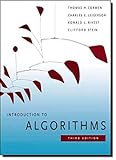Here are the books that our university uses for first-year students combined with books that I found to be useful:
Introduction to Programming (using Eiffel) [1]
Mathematics for Computer Science (or: Discrete Mathematics) [2]
Introduction to Datastructures and Algorithms [3]
Introduction to Digital Design [4]
Parallel Programming (using Java) [5]
Optional but highly recommended, you'll probably find it completely out of scope:
Real Analysis I [6]
Real Analysis II [7]
Introduction to Linear Algebra [8]
Introduction to Physics [9]
[1]: http://www.amazon.com/Touch-Class-Learning-Program-Contracts...
[2]: http://ocw.mit.edu/courses/electrical-engineering-and-comput...
[3]: http://www.amazon.de/Introduction-Algorithms-Thomas-H-Cormen...
[4]: http://www.amazon.com/Digital-Design-Computer-Architecture-E...
[5]: http://www.amazon.com/Java-Concurrency-Practice-Brian-Goetz/...
[6]: http://www.amazon.com/Analysis-Texts-Readings-Mathematics-No...
[7]: http://www.amazon.com/Analysis-II-Texts-Readings-Mathematics...
[8]: http://www.amazon.com/Introduction-Linear-Algebra-Fourth-Gil...
[9]: http://www.amazon.com/Fundamentals-Physics-Extended-David-Ha...
Coming from a C++ background, I felt uncomfortable using python as more than a glue/scripting language, because the way resources are managed is treated very magically in most tutorials.
Say I want to use the OpenCV library to fling matrices and images around, it's hard to be confident of what the runtime is going to do with the data without having a really good handle on what mechanisms python has for dealing with data. Which is what this book is about.
As useful as they are for interviews, classic algorithms and data structures are probably not a big part of most peoples work, but understanding how they can be done in python helps you to make assumptions and use libraries in smart ways!
Most of all, it's fun and well written, for an algorithms book. It's more about python than algorithms, so if you were student wanting to learn algorithms, this book is better[2].
[1] http://www.amazon.co.uk/Data-Structures-Algorithms-Using-Pyt... [2]http://www.amazon.co.uk/Introduction-Algorithms-T-Cormen/dp/...
This book covers both basic and advance topics in a well written manner. Correct me if I am wrong but I believe this book is used in some MIT courses.
http://www.amazon.co.uk/Introduction-Algorithms-T-Cormen/dp/...


A Pattern Language, Alexander and Ishikawa and Silverstein http://amzn.to/2s9aSSc
Advanced Programming in the Unix Environment , Stevens http://amzn.to/2qPOMjN
Algorithmics: the Spirit of Computing, Harel http://amzn.to/2rW5FNS
Applied Crytography, Wiley http://amzn.to/2rsULxS
Clean Code, Martin http://amzn.to/2sIOWtQ
Clean Coder, Martin http://amzn.to/2rWgbEP
Code Complete, McConnel http://amzn.to/2qSUIwE
Code: The Hidden Language of Computer Hardware and Software, Petzold http://amzn.to/2rWfR9d
Coders at Work, Seibel http://amzn.to/2qPCasZ
Compilers: Principles, Techniques, & Tools, Aho http://amzn.to/2rCSUVA
Computer Systems: A Programmer's Perspective, O'Hallaron and Bryant http://amzn.to/2qPY5jH
Data Flow Analysis: Theory and Practice, Khedker http://amzn.to/2qTnSvr
Dependency Injection in .NET, Seemann http://amzn.to/2rCz0tV
Domain Driven Design, Evans http://amzn.to/2sIGM4N
Fundamentals of Wireless Communication, Tse and Viswanath http://amzn.to/2rCTmTM
Genetic Programming: An Intrduction, Banzhaf http://amzn.to/2s9sdut
Head First Design Patterns, O'Reilly http://amzn.to/2rCISUB
Implementing Domain-Driven Design, Vernon http://amzn.to/2qQ2G5u
Intrduction to Algorithms, CLRS http://amzn.to/2qXmSBU
Introduction to General Systems Thinking, Weinberg http://amzn.to/2qTuGJw
Joy of Clojure, Fogus and Houser http://amzn.to/2qPL4qr
Let over Lambda, Hoyte http://amzn.to/2rWljcp
Operating Systems: Design and Implementation, Tanenbaum http://amzn.to/2rKudsw
Parsing Techniques, Grune and Jacobs http://amzn.to/2rKNXfn
Peopleware: Productive Projects and Teams, DeMarco and Lister http://amzn.to/2qTu86F
Programming Pearls, Bentley http://amzn.to/2sIRPe9
Software Process Design: Out of the Tar Pit, McGraw-Hill http://amzn.to/2rVX0v0
Software Runaways, Glass http://amzn.to/2qT2mHn
Sorting and Searching, Knuth http://amzn.to/2qQ4NWQ
Structure and Interpretation of Computer Programs, Abelson and Sussman http://amzn.to/2qTflsk
The Art of Unit Testing, Manning http://amzn.to/2rsERDu
The Art of Unix Programming, ESR http://amzn.to/2sIAXUZ
The Design of Design: Essays from a Computer Scientist, Brooks http://amzn.to/2rsPjev
The Effective Engineer, Lau http://amzn.to/2s9fY0X
The Elements of Style, Strunk and White http://amzn.to/2svB3Qz
The Healthy Programmer, Kutner http://amzn.to/2qQ2MtQ
The Linux Programming Interface, Kerrisk http://amzn.to/2rsF8Xi
The Mythical Man-Month, Brooks http://amzn.to/2rt0dAR
The Practice of Programming, Kernighan and Pike http://amzn.to/2qTje0C
The Pragmatic Programmer, Hunt and Thomas http://amzn.to/2s9dlvS
The Psychology of Computer Programming, Weinberg http://amzn.to/2rsPypy
Transaction Processing: Concepts and Techniques, Gray and Reuter http://amzn.to/
Types and Programming Languages, Pierce http://amzn.to/2qT2d6G
Understanding MySQL Internals, Pachev http://amzn.to/2svXuFo
Working Effectively with Legacy Code, Feathers http://amzn.to/2sIr09R
Zen of graphics programming, Abrash http://amzn.to/2rKIW6Q